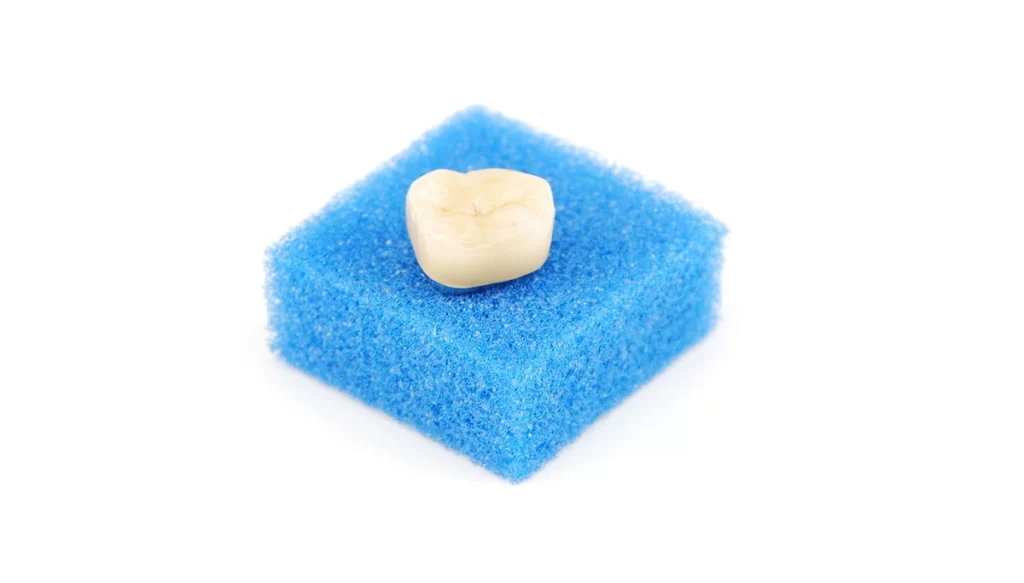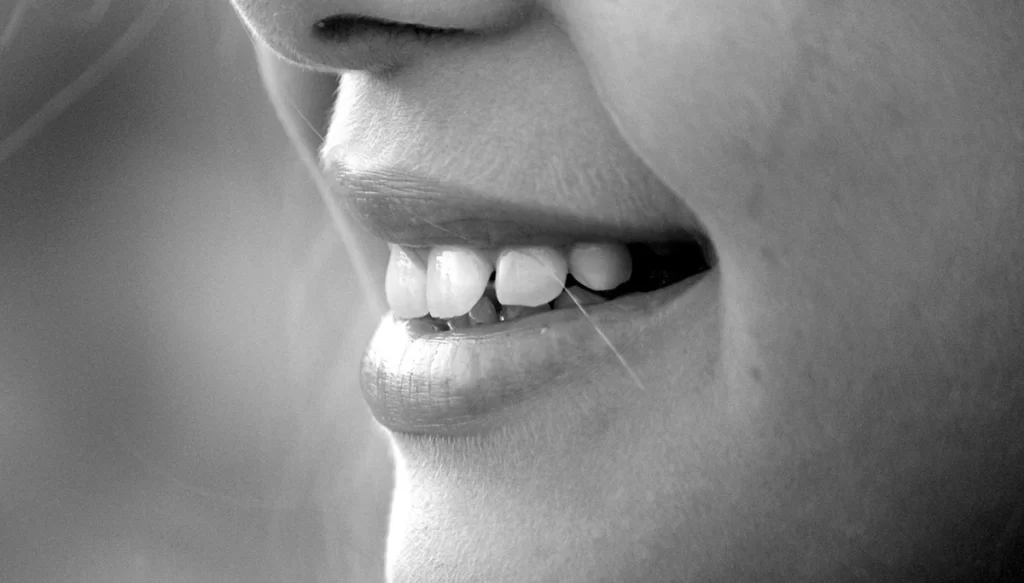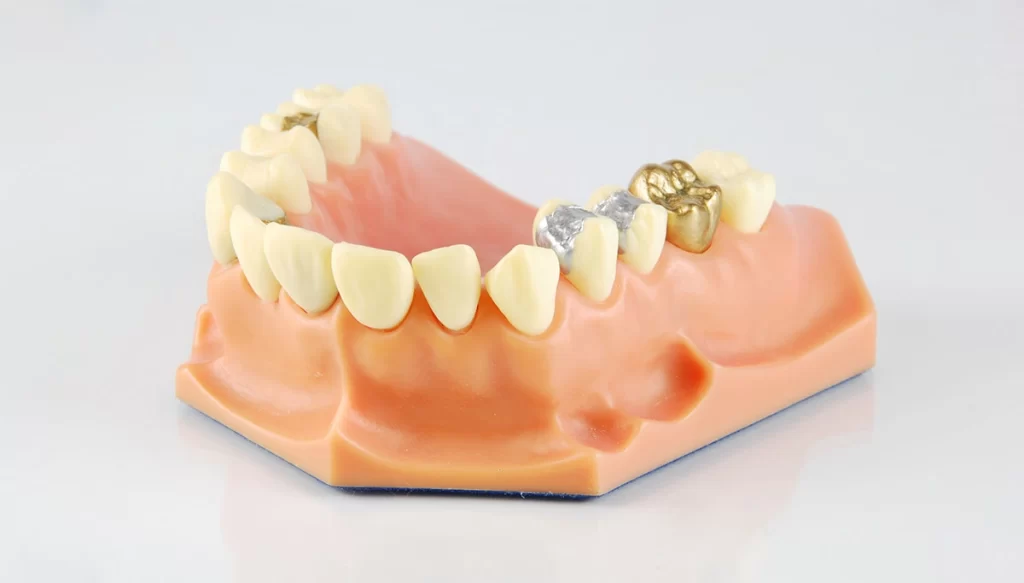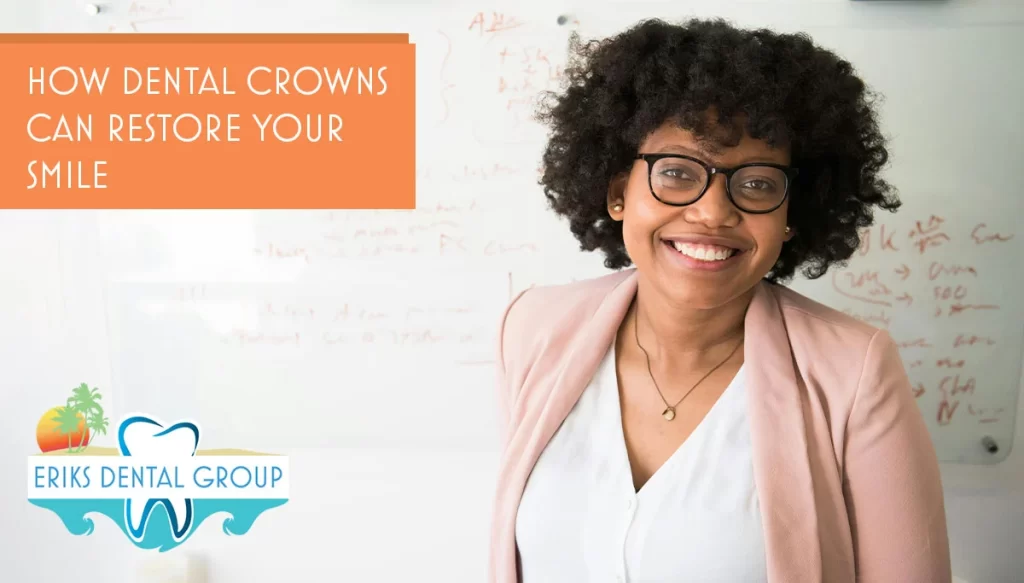Have you ever felt self-conscious about a chipped, discolored, or misshapen tooth? If so, you’re not alone. Nearly 67% of Americans are self-conscious about their teeth in one way or another. Fortunately, there are available solutions like dental crowns. Dental crowns can not only restore your teeth but your self-esteem, too.
Whether you’re looking to enhance your dental health or simply want to feel confident each time you smile, keep reading to learn more.
Why Are Dental Crowns Necessary?

Beyond the self-esteem of your smile, there are many reasons why a dental crown may be the solution for your oral health.
- Tooth Damage: When a tooth is cracked, chipped, broken, or damaged in any way, a new crown can help strengthen and support against future damage while restoring your smile.
- Root Canal Treatment: Following a root canal, dental crowns offer preservation and protection. It’s important to note that not all root canal treatments require a dental crown, however, they are often a great solution to protect the tooth from bacteria and restore functionality.
- Tooth Decay: Sometimes a tooth can have so much decay that a filling isn’t an option for maximum restoration. Instead, a crown can be fitted to provide protection and restore functionality.
- Extra Support: Additional support is necessary in cases like extra-large fillings, implants, or bridges.
- Malocclusion Issues: Malocclusion is an industry term for misalignment. With severe misalignment issues that cause accidental biting of cheeks and tongue or impact what is called the “bite”, dental crowns can provide extra support that can help correct the severity.
What Are The Benefits Of Dental Crowns

Dental crowns offer one of the leading solutions to smile and functionality restoration.
Protection
In many of the cases listed above, dental crowns provide additional protection necessary to preserve existing teeth. In the case of a root canal procedure, for example, a crown is placed for added protection against additional bacteria and to provide structure that allows for full functionality.
Durability
Although the exact longevity varies based on how often you visit the dentist for regular cleanings and check-ups, where the crown is placed in the mouth, and the type of dental crown (more on that below), most dental crowns have an average lifespan of 5 to 10 years. Some can last much longer and others for less time, but overall, it’s a great solution for semi-permanent results.
Restoration
Cosmetic improvements are a major benefit, on top of the functionality. For teeth that are misshapen, cracked, discolored, chipped, or broken, a dental crown restores the look of your smile.
No-Slipping
A big drawback of other solutions like dentures is the discomfort. Without a perfect fit, dentures can slip and slide, causing soreness in the cheeks, jaw, tongue, and the roof of the mouth. Dental crowns are custom fit to the exact tooth size and shape, then adhered using dental cement, adhesive, or screws meaning they won’t slip or slide, impact eating, or cause discomfort.
Pain Relief
If you have severe misalignment issues, an extremely damaged or decayed tooth, or high sensitivity levels in a specific tooth, crowns alleviate much of the pain they can cause. By basically encasing the surface of the tooth, the nerves are protected, so sharp, shooting pains are less likely (if not impossible) to occur. With alignment issues, a crown can change the way your teeth fit together (called the “bite”), helping everything from chewing to speech patterns improve.
Note: Some are falling victim to a rising scam for smile restoration. Veneers can be a good option for cosmetic issues only when it comes to your smile, but it is extremely important to ensure quality and safety when considering veneers.
Types of Dental Crowns

If you’re picturing an unattractive metal toothcap from the movies and thinking it’s not for you, think again. Dental crowns come in many different types and your dentist can help you choose the one that’s best for revitalizing your smile.
Metal
Hear us out, ok? Metal crowns can be gold, palladium, nickel, or chromium. They rarely chip or break and can often last the longest. Typically, these types of crowns are a great option for back teeth where they aren’t often seen through your smile anyway.
Porcelain-Fused (PFM) and Porcelain
Porcelain-fused-to-metal (PFM) and porcelain crowns are a popular option for front teeth or any tooth that is visible. These types can be shade-matched for optimum smile restoration and are a great choice if you have any type of metal allergy. With PFM types, you’ll get the durability of a metal crown and the natural look of porcelain.
All-Ceramic
Although this type doesn’t necessarily offer the longevity or the durability of metal crowns, they’re still an excellent choice. Many different materials are used to make these, but one of the most popular is zirconia.
Dental Crown Procedure
If you’re feeling confused or overwhelmed by the types of crowns and wondering if you need one or not, your dentist will explain everything during the first step of the procedure: your consultation.
During this initial step, you’ll be guided through everything from an exam to whether or not a dental crown is the right option for you. If it is, your dentist will create a customized plan, including which type of crown is the best choice.
Once the consultation is complete, you’ll be scheduled for the official procedure. Typically, this takes place throughout two appointments.
First Appointment:
Your original tooth will be repaired, meaning the plan created at your consultation will begin using high-quality medical-grade numbing medicines. Sometimes this means filing the original tooth down and other times it’s the completion of a root canal procedure.
Once this is finished, a mold is made to fit your existing tooth and mouth shape. As this is highly customizable, the way the crown fits will be a combination of your preference and comfort and the expertise of the dentist. Then the mold is sent to a specialty lab so the final crown can be a perfect fit.
After the mold is made, a temporary crown is placed. This one is placed using temporary cement and tooth-color material.
Second Appointment:
The temporary crown is removed and the final fitting is placed. You’ll be able to see and feel the crown in your mouth and any adjustments you need will be made.
Dental Crown Services In South Florida
Eriks Dental Group is pleased to serve you in our Boynton Beach state-of-the-art facility – if you’re ready to restore your smile, schedule your appointment today.

